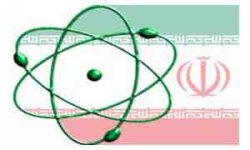 TEHRAN (FNA)- Iran’s peaceful nuclear program is a home-grown technology and achievement made by the country’s own scientists, an Iranian diplomat said.
TEHRAN (FNA)- Iran’s peaceful nuclear program is a home-grown technology and achievement made by the country’s own scientists, an Iranian diplomat said.
“The Islamic Republic of Iran has become self-sufficient in nuclear technology and this technology has not been imported from any other part of the world,” Iran’s Consul to Lahore Saeed Kharrazi told Pakistani reporters in a press conference on the occasion of the 30th anniversary of the victory of Iran’s Islamic Revolution on Saturday.
He also denied any relations between Iran’s nuclear program and Pakistani nuclear scientist Abdul Qadeer Khan considered as the father of Pakistan’s atomic bomb.
Khan, 72, had been under house arrest in Islamabad since February 2004 but the Islamabad High Court recently declared him a free man.
Elsewhere, the Iranian diplomat strongly condemned the US planes’ missile attacks on Pakistani tribes and people and described it as an attack against the sovereignty of the country.
On the issue of Iran-Pakistan-India gas pipeline project, he said, “Iran and Pakistan have reached an agreement and this great project will be operative soon.”
Iran and Pakistan initiated a Gas Sales Purchase Agreement earlier this year.
On April 30, Ahmadinejad met Indian Prime Minister Manmohan Singh and said that the two sides had decided to address the issue the very near future.
Indian and Pakistani officials also announced earlier this year that they had resolved almost all bilateral issues including transit fee which saw New Delhi boycotting IPI pipeline talks for about a year.
In June, Pakistan Foreign Minister Shah Mahmood Qureshi, who met New Delhi’s Oil Minister Murli Deora said that the two sides have resolved all bilateral issues.
India has more or less agreed to give Pakistan a transit fee of $200 million per year, which is equivalent to $0.60 per million British thermal unit for allowing passage of the pipeline through that country.
India and Pakistan finally agreed in February 2007 to pay Iran $4.93 per million British thermal units ($4.67/GJ) but some details relating to price adjustment remained open to further negotiation. There was a breakthrough in the talks in April 2008 when Iranian President Mahmoud Ahmadinejad visited Pakistan and India.
According to the project proposal, the pipeline will begin from Iran’s Assalouyeh Energy Zone in the south and stretch over 1,100 km through Iran. In Pakistan, it will pass through Baluchistan and Sindh but officials now say the route may be changed if China agrees to the project.
The gas will be supplied from the South Pars field. The initial capacity of the pipeline will be 22 billion cubic meter of natural gas per annum, which is expected to be later raised to 55 billion cubic meter. It is expected to cost $7.4 billion.
According to Indian ministry sources, the IPI gas pipeline is quite crucial for New Delhi as after signing of the agreement, 60 million standard cubic meters per day (mmscmd) of gas is expected to be supplied in phase-I, which will be shared equally between India and Pakistan.
In phase-II, 90 mmscmd of gas will be supplied to India and Pakistan. So far six meetings of the trilateral joint working group (JWG) of the participating countries have been held with the last meeting being held in New Delhi on June 28-29, 2007.
India, Asia’s third-largest economy, can produce only half the gas it needs to generate electricity, causing blackouts and curbing economic growth. Demand may more than double to 400 million cubic meters a day by 2025 if the economy grows at the projected rate of 7 to 8 percent a year, according to the Indian oil ministry.
Iran plans to start exporting gas to Pakistan in 2011. Iran has completed half the pipeline, which can carry 110 million cubic meters of gas a day, National Iranian Gas Company (NIOC) said in April. India uses about 108 million cubic meters of gas a day, according to a BP Plc report.
 Eurasia Press & News
Eurasia Press & News